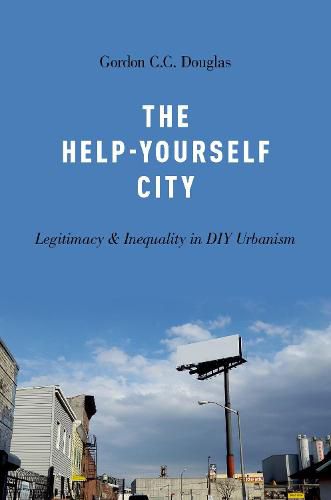Readings Newsletter
Become a Readings Member to make your shopping experience even easier.
Sign in or sign up for free!
You’re not far away from qualifying for FREE standard shipping within Australia
You’ve qualified for FREE standard shipping within Australia
The cart is loading…






When cash-strapped local governments fail to provide adequate services, and planning policies prioritize economic development over community needs, how do concerned citizens respond? In The Help-Yourself City, Gordon Douglas looks closely at the people who take urban planning into their own hands, dubbed do-it-yourself urban design. Through in-depth interviews with do-it-yourselfers, professional planners, and community members, as well as participant observation, photography, media, and policy analysis, Douglas demonstrates that many do-it-yourselfers employ professional techniques and expertise to enable and inspire their actions. He argues that many unauthorized interventions are created from a position of privilege, where legal repercussions are unlikely, while people from disadvantaged communities where improvements may be most needed face disincentives to taking such actions themselves. Presenting a needed social analysis of this growing trend, while connecting it to debates on inequality, citizenship, and contemporary urban political economy, The Help-Yourself City tells a street-level story of people’s relationships to their surroundings and the individualization of democratic responsibility.
$9.00 standard shipping within Australia
FREE standard shipping within Australia for orders over $100.00
Express & International shipping calculated at checkout
When cash-strapped local governments fail to provide adequate services, and planning policies prioritize economic development over community needs, how do concerned citizens respond? In The Help-Yourself City, Gordon Douglas looks closely at the people who take urban planning into their own hands, dubbed do-it-yourself urban design. Through in-depth interviews with do-it-yourselfers, professional planners, and community members, as well as participant observation, photography, media, and policy analysis, Douglas demonstrates that many do-it-yourselfers employ professional techniques and expertise to enable and inspire their actions. He argues that many unauthorized interventions are created from a position of privilege, where legal repercussions are unlikely, while people from disadvantaged communities where improvements may be most needed face disincentives to taking such actions themselves. Presenting a needed social analysis of this growing trend, while connecting it to debates on inequality, citizenship, and contemporary urban political economy, The Help-Yourself City tells a street-level story of people’s relationships to their surroundings and the individualization of democratic responsibility.